When talking about academic writing, essay writing cannot be left out of the loop. It’s one of the most common types of writing exercises for university admissions, international exams, etc. As promised in our earlier article, today we’ll be talking about an opinion essay.
So, we’ll look at:
- The structure of writing an “Opinion essay”.
- Sample essays.
- Useful language to use in the essays.
- Tips.
An opinion essay is there to show your viewpoint on a particular topic, to prove your ideas. The structure is the following:
- Paragraph 1_Introduction – a good introduction starts with the thesis statement (what the essay is going to be about), it should clearly state your opinion instead of leaving your readers in the dark. It should also include 3 reasons to back your viewpoint and highlight why you think the statement of the essay is true/false.Read more in this article.
- Paragraph 2,3,4_Body – this is where you expand on the reasons you had mentioned in the introduction, provide reasons and examples to support them by giving as many valid details and facts as possible. Each paragraph matches 1 reason (3 reasons = 3 body paragraphs).
- Paragraph 5_Conclusion – here you summarize your argument by restating the reasons mentioned in the essay. You can end the essay by a “call for action” phrase challenging the readers to take some action and reconsider their opinion if they differ from yours. Read more in this article.
This is what the simplest version looks like. However, depending on the level of language competency of your students you can choose to have 2 reasons.
In the input session, when presenting the structure of the essay, it’s best to work on sample essays to reinforce assimilation while learning on-job. I have been using the one here and it has been quite helpful for the students. Working on sample essays gives the students a chance to grasp the general point and not to get confused when working on the hometask.
It is a good idea to write a short sample essay in class as well, on a topic of your choice, so that you can monitor and see how confident the students feel about the new material. In my classroom the students are always writing the first piece in pairs to help each other and generate ideas for speculation. When doing so, bear in mind that it’s best if you have similar ability students working together, as the stronger one will always take over the writing leaving the weaker one unclear on both the task and the workflow. The recent topic I’ve used has been: “Nowadays, food has become easier to prepare. Has this change improved the way people live? Use specific reasons and examples to support your answer.”
Sample essays
Below, we’re going to look at a couple essays my students have come up with together with the feedback they’ve received. The sample you’ll see were the first drafts of the essay.
The task:
- Write an Opinion essay on the following topic: “Nowadays, food has become easier to prepare. Has this change improved the way people live? Use specific reasons and examples to support your answer”.
- Use specific reasons and examples to support your viewpoint.
- Word count 200-250.
Sample 1
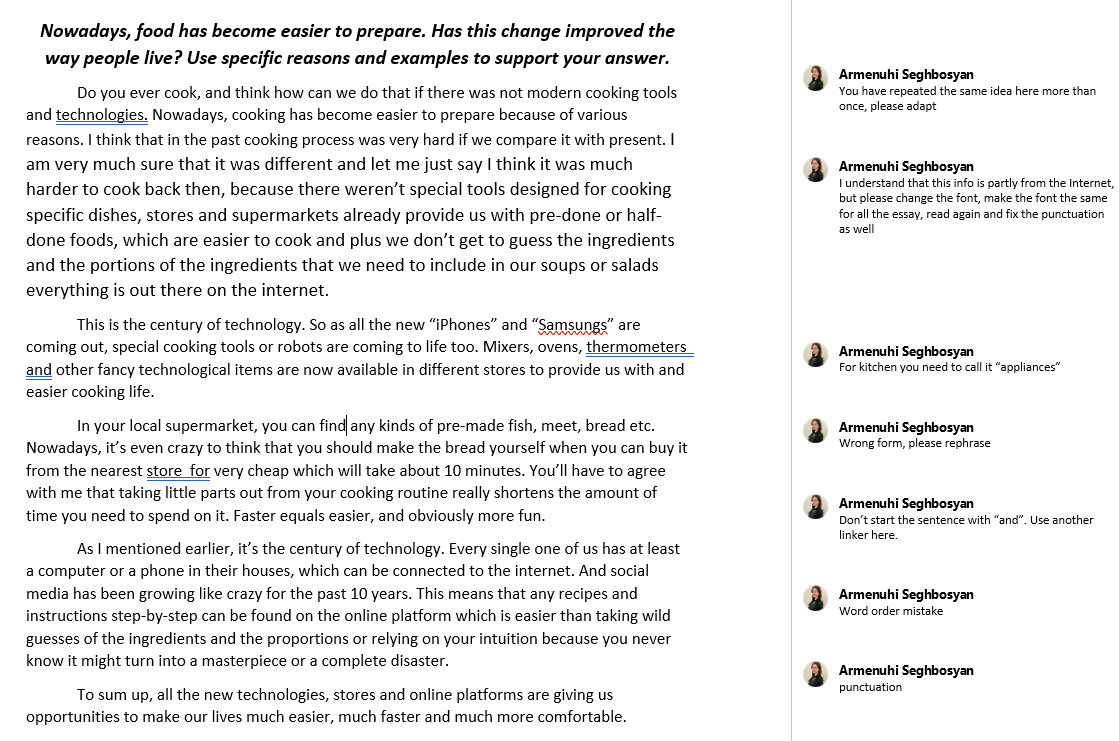
You can see the feedback below.
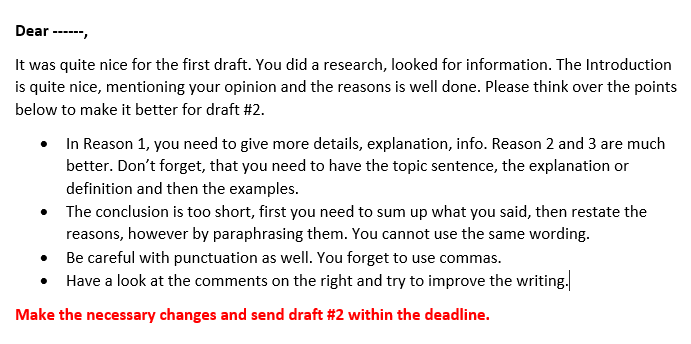
The basic idea in providing feedback here is to try to guide the student to correct their mistakes themselves rather than provide them with the answers. It helps them to better assimilate the material.
As you can see from the essay above, the student had some issues with applying the correct structure together with some language errors. The next step is to work on the second draft and try to improve it following the comments and referring to the background information presented during the class.
Sample 2
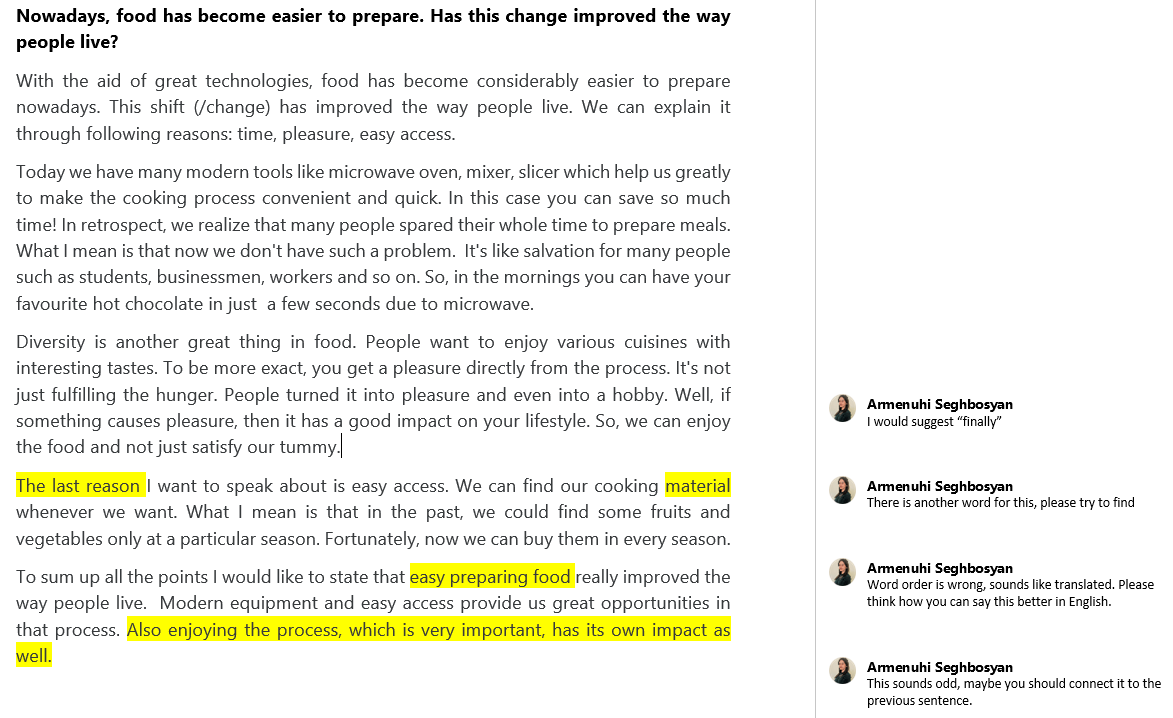
You can see the feedback below:

As you can see, this essay was much better formulated (this is a much stronger student), most of the comments have to do with word choice and formulation. The task for the second draft is the same — improve it based on the comments.
Useful language
To be really brilliant, one should know to use the right language to reach that effect. Apart from a correct structure, the essay should also be rich in linking devices, phrases and expressions that help the speech sound more sophisticated, well thought, cohesive and coherent. Below are some phrases that I’ve been using with my students to make their writing more connected and fluent.
Supporting your argument
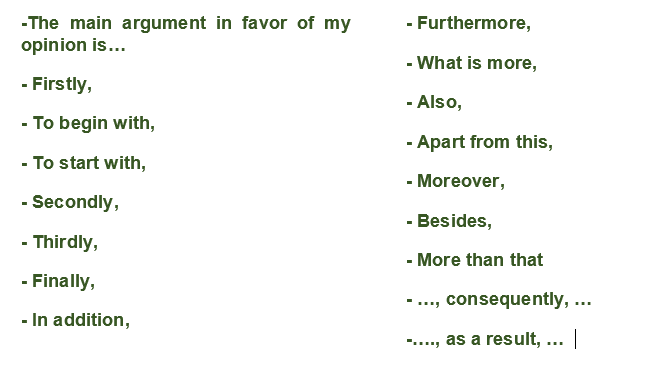
Expressing opinion

Expression counter-arguments

Disagreeing with the others’ opinion

Summarizing
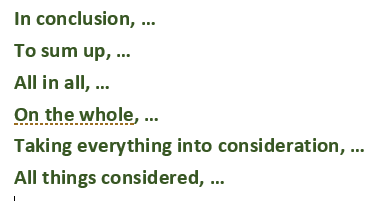
For more phrases, I’ve been using the resource here.
Finally, let’s look at some tips I’ve been sharing with my students as a summary of what they should/shouldn’t do when writing an opinion essay.
✓ Introduce each paragraph with a topic sentence, outlining the main ideas.
✓ Write in formal style. Avoid abbreviations and short forms.
✓ Use active voice. An opinion essay is about your opinion. This message won’t get to the reader if you use passive, impersonal structures.
✓ Vary your sentence structure. Change between long and short sentences, use multiple claus structures on one hand and simple sentences on the other. This will keep the reader’s interest.
✓ Use consistent tenses. Use present tenses most of the time besides when talking about past actions (research done, etc.)
✓ Do not write about advantages or disadvantages or points for or against.This is another style.
✓ Don’t use colloquial expressions and/or emotive vocabulary. Keep it professional and formal/semi-formal.
✓ Don’t use archaic terms. “Thus” and “alas” are not terms utilized in common English and hence, should not appear in the academic paper as well. It will sound very bookish and prosaic.
✓ Don’t use clichés. They are easy to use. For example, “too little, too late”, “better late than never”, etc. It is considered vague in an academic paper.
✓ Don’t be redundant. Be careful not to repeat the same ideas. This sometimes happens when you paraphrase the same idea and put it down differently with another wording.
Last but not the list. To make sure the students come up with the perfect piece of writing they need guidelines to follow apart from the background input session. Here is a checklist my students are using to make sure everything is as it is supposed to be.
Let us know how your opinion essay writing sessions go and what other tips do you have to share with your international colleagues :).






 Вероника Аветисян
Вероника Аветисян 
 Маргарита Аветисян
Маргарита Аветисян 


